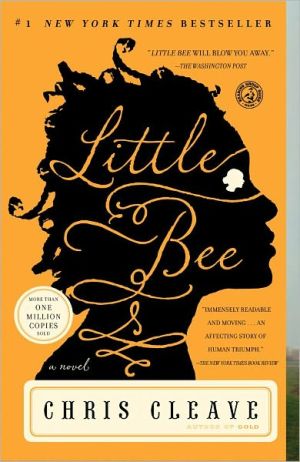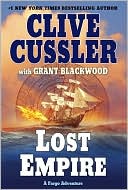The Other Boleyn Girl
The #1 New York Times bestseller from “the queen of royal fiction” (USA TODAY) Philippa Gregory is a rich, compelling novel of love, sex, ambition, and intrigue surrounding the Tudor court of Henry VIII, Anne Boleyn, and the infamous Boleyn family. When Mary Boleyn comes to court as an innocent girl of fourteen, she catches the eye of the handsome and charming Henry VIII. Dazzled by the king, Mary falls in love with both her golden prince and her growing role as unofficial queen. However,...
Search in google:
Two sisters competing for the greatest prize: the love of a king When Mary Boleyn comes to court as an innocent girl of fourteen, she catches the eye of Henry VIII. Dazzled by the king, Mary falls in love with both her golden prince and her growing role as unofficial queen. However, she soon realizes just how much she is a pawn in her family's ambitious plots as the king's interest begins to wane and she is forced to step aside for her best friend and rival: her sister, Anne. Then Mary knows that she must defy her family and her king, and take her fate into her own hands. A rich and compelling tale of love, sex, ambition, and intrigue, The Other Boleyn Girl introduces a woman of extraordinary determination and desire who lived at the heart of the most exciting and glamorous court in Europe and survived by following her own heart.Publishers WeeklySisterly rivalry is the basis of this fresh, wonderfully vivid retelling of the story of Anne Boleyn. Anne, her sister Mary and their brother George are all brought to the king's court at a young age, as players in their uncle's plans to advance the family's fortunes. Mary, the sweet, blond sister, wins King Henry VIII's favor when she is barely 14 and already married to one of his courtiers. Their affair lasts several years, and she gives Henry a daughter and a son. But her dark, clever, scheming sister, Anne, insinuates herself into Henry's graces, styling herself as his adviser and confidant. Soon she displaces Mary as his lover and begins her machinations to rid him of his wife, Katherine of Aragon. This is only the beginning of the intrigue that Gregory so handily chronicles, capturing beautifully the mingled hate and nearly incestuous love Anne, Mary and George ("kin and enemies all at once") feel for each other and the toll their family's ambition takes on them. Mary, the story's narrator, is the most sympathetic of the siblings, but even she is twisted by the demands of power and status; charming George, an able plotter, finally brings disaster on his own head by falling in love with a male courtier. Anne, most tormented of all, is ruthless in her drive to become queen, and then to give Henry a male heir. Rather than settling for a picturesque rendering of court life, Gregory conveys its claustrophobic, all-consuming nature with consummate skill. In the end, Anne's famous, tragic end is offset by Mary's happier fate, but the self-defeating folly of the quest for power lingers longest in the reader's mind. (June 4) Forecast: Lovers of historical romances heavy on the history will relish this new entry from Gregory and perhaps propel it onto bestseller lists this summer. Copyright 2002 Cahners Business Information.
The Other Boleyn Girl\ \ By Philippa Gregory \ Touchstone\ Copyright © 2001 Philippa Gregory Ltd.\ All right reserved.\ ISBN: 0-7432-6983-7 \ \ \ Chapter One\ Spring 1521 \ I could hear a roll of muffled drums. But I could see nothing but the lacing on the bodice of the lady standing in front of me, blocking my view of the scaffold. I had been at this court for more than a year and attended hundreds of festivities; but never before one like this.\ By stepping to one side a little and craning my neck, I could see the condemned man, accompanied by his priest, walk slowly from the Tower toward the green where the wooden platform was waiting, the block of wood placed center stage, the executioner dressed all ready for work in his shirtsleeves with a black hood over his head. It looked more like a masque than a real event, and I watched it as if it were a court entertainment. The king, seated on his throne, looked distracted, as if he was running through his speech of forgiveness in his head. Behind him stood my husband of one year, William Carey, my brother, George, and my father, Sir Thomas Boleyn, all looking grave. I wriggled my toes inside my silk slippers and wished the king would hurry up and grant clemency so that we could all go to breakfast. I was only thirteen years old, I was always hungry.\ The Duke of Buckinghamshire, far away on the scaffold, put off his thick coat. He was close enough kin for me to call him uncle. He had come to my wedding and given me a gilt bracelet. My father told me that he had offended the king a dozen ways: he had royal blood in his veins and he kept too large a retinue of armed men for the comfort of a king not yet wholly secure on his throne; worst of all he was supposed to have said that the king had no son and heir now, could get no son and heir, and that he would likely die without a son to succeed him to the throne.\ Such a thought must not be said out loud. The king, the court, the whole country knew that a boy must be born to the queen, and born soon. To suggest otherwise was to take the first step on the path that led to the wooden steps of the scaffold which the duke, my uncle, now climbed, firmly and without fear. A good courtier never refers to any unpalatable truths. The life of a court should always be merry.\ Uncle Stafford came to the front of the stage to say his final words. I was too far from him to hear, and in any case I was watching the king, waiting for his cue to step forward and offer the royal pardon. This man standing on the scaffold, in the sunlight of the early morning, had been the king's partner at tennis, his rival on the jousting field, his friend at a hundred bouts of drinking and gambling, they had been comrades since the king was a boy. The king was teaching him a lesson, a powerful public lesson, and then he would forgive him and we could all go to breakfast.\ The little faraway figure turned to his confessor. He bowed his head for a blessing and kissed the rosary. He knelt before the block and clasped it in both hands. I wondered what it must be like, to put one's cheek to the smooth waxed wood, to smell the warm wind coming off the river, to hear, overhead, the cry of seagulls. Even knowing as he did that this was a masque and not the real thing, it must be odd for Uncle to put his head down and know that the executioner was standing behind.\ The executioner raised his ax. I looked toward the king. He was leaving his intervention very late. I glanced back at the stage. My uncle, head down, flung wide his arms, a sign of his consent, the signal that the ax could fall. I looked back to the king, he must rise to his feet now. But he still sat, his handsome face grim. And while I was still looking toward him there was another roll of drums, suddenly silenced, and then the thud of the ax, first once, then again and a third time: a sound as domestic as chopping wood. Disbelievingly, I saw the head of my uncle bounce into the straw and a scarlet gush of blood from the strangely stumpy neck. The black-hooded axman put the great stained ax to one side and lifted the head by the thick curly hair, so that we could all see the strange mask-like thing: black with the blindfold from forehead to nose, and the teeth bared in a last defiant grin.\ The king rose slowly from his seat and I thought, childishly, "Dear God, how awfully embarrassing this is going to be. He has left it too late. It has all gone wrong. He forgot to speak in time."\ But I was wrong. He did not leave it too late, he did not forget. He wanted my uncle to die before the court so that everybody might know that there was only one king, and that was Henry. There could be only one king, and that was Henry. And there would be a son born to this king - and even to suggest otherwise meant a shameful death.\ The court returned quietly to Westminster Palace in three barges, rowed up the river. The men on the riverbank pulled off their hats and kneeled as the royal barge went swiftly past with a flurry of pennants and a glimpse of rich cloth. I was in the second barge with the ladies of the court, the queen's barge. My mother was seated near me. In a rare moment of interest she glanced at me and remarked, "You're very pale, Mary, are you feeling sick?"\ "I didn't think he would be executed," I said. "I thought the king would forgive him."\ My mother leaned forward so that her mouth was at my ear and no one could have heard us over the creaking of the boat and the beat of the rowers' drum. "Then you are a fool," she said shortly. "And a fool to remark it. Watch and learn, Mary. There is no room for mistakes at court."\ (Continues...)\ \ \ \ \ Excerpted from The Other Boleyn Girl by Philippa Gregory Copyright © 2001 by Philippa Gregory Ltd.. Excerpted by permission.\ All rights reserved. No part of this excerpt may be reproduced or reprinted without permission in writing from the publisher.\ Excerpts are provided by Dial-A-Book Inc. solely for the personal use of visitors to this web site. \ \
\ From Barnes & NobleThe "other Boleyn girl" is Mary, a Boleyn certainly less well known than older sister Queen Anne. Based on three years of historical research, this tasty Tudor morsel presents the two siblings both as competitors, confederates, and romantic rivals. Apparently, old King Henry had his hands full, according to this intelligent and sexy novel from the versatile author of Zelda's Cut.\ \ \ \ \ Publishers WeeklySisterly rivalry is the basis of this fresh, wonderfully vivid retelling of the story of Anne Boleyn. Anne, her sister Mary and their brother George are all brought to the king's court at a young age, as players in their uncle's plans to advance the family's fortunes. Mary, the sweet, blond sister, wins King Henry VIII's favor when she is barely 14 and already married to one of his courtiers. Their affair lasts several years, and she gives Henry a daughter and a son. But her dark, clever, scheming sister, Anne, insinuates herself into Henry's graces, styling herself as his adviser and confidant. Soon she displaces Mary as his lover and begins her machinations to rid him of his wife, Katherine of Aragon. This is only the beginning of the intrigue that Gregory so handily chronicles, capturing beautifully the mingled hate and nearly incestuous love Anne, Mary and George ("kin and enemies all at once") feel for each other and the toll their family's ambition takes on them. Mary, the story's narrator, is the most sympathetic of the siblings, but even she is twisted by the demands of power and status; charming George, an able plotter, finally brings disaster on his own head by falling in love with a male courtier. Anne, most tormented of all, is ruthless in her drive to become queen, and then to give Henry a male heir. Rather than settling for a picturesque rendering of court life, Gregory conveys its claustrophobic, all-consuming nature with consummate skill. In the end, Anne's famous, tragic end is offset by Mary's happier fate, but the self-defeating folly of the quest for power lingers longest in the reader's mind. (June 4) Forecast: Lovers of historical romances heavy on the history will relish this new entry from Gregory and perhaps propel it onto bestseller lists this summer. Copyright 2002 Cahners Business Information.\ \ \ Library JournalBefore Henry VIII ever considered making Anne Boleyn his wife, her older sister, Mary, was his mistress. Historical novelist Gregory (Virgin Earth) uses the perspective of this "other Boleyn girl" to reveal the rivalries and intrigues swirling through England. The sisters and their brother George were raised with one goal: to advance the Howard family's interests, especially against the Seymours. So when Mary catches the king's fancy, her family orders her to abandon the husband they had chosen. She bears Henry two children, including a son, but Anne's desire to be queen drives her with ruthless intensity, alienating family and foes. As Henry grows more desperate for a legitimate son and Anne strives to replace Catherine as queen, the social fabric weakens. Mary abandons court life to live with a new husband and her children in the countryside, but love and duty bring her back to Anne time and again. We share Mary's helplessness as Anne loses favor, and everyone abandons her amid accusations of adultery, incest, and witchcraft. Even the Boleyn parents won't intervene for their children. Gregory captures not only the dalliances of court but the panorama of political and religious clashes throughout Europe. She controls a complicated narrative and dozens of characters without faltering, in a novel sure to please public library fans of historical fiction. Kathy Piehl, Minnesota State Univ., Mankato Copyright 2002 Cahners Business Information.\ \ \ \ \ Kirkus ReviewsHistorically based, page-turning story of Mary Boleyn, sister of the infamous Anne, decapitated by Henry VIII: here, as much a tale of love and lust as it is a saga about an ambitious family who used their kin as negotiable assets. Rich with period detail, the story is told by Mary, the younger sister, who is married off at 13 to William Carey, a courtier at Henry's court. Mary serves Queen Katherine, mother of the future Queen Mary, and begins her tale when her sister Anne, stylish and beautiful, returns from France to join Mary at court. The sisters' ambitious parents and their uncle, the future Duke of Norfolk, are determined to acquire power and influence, as well as titles and estates, from the king, even if it means that Mary must become his mistress. Their son George is made to work on his sisters' behalf and to live a life not of his choosing (he's homosexual and loves a fellow courtier). Mary bears the king a son, but Anne soon after uses all her wiles to make Henry divorce the Queen and marry her. The Boleyns, more ruthlessly functional than dysfunctional, continue to plot and push to achieve their ends. Mary recounts the king's wish for a male heir; his break with the Pope; Anne's skillful if criminal plotting that leads to the divorce and her marriage to Henry; the birth of the future Queen Elizabeth; and Anne's desperate attempts to bear a son. Meanwhile, she herself, widowed after her first husband dies from the plague, finds love with Sir William Stafford—the only strand of the story with possibilities for future happiness. Absorbing tale of a Renaissance family determined to climb as high as they can, whatever the cost.\ \








